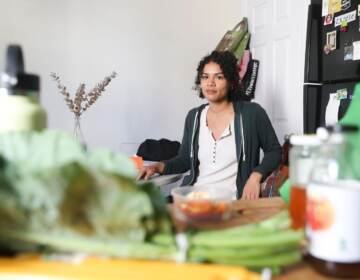Wolf opposes Medicaid work requirements passed by House
The proposal would require able-bodied adults to work 20 hours a week, look for work, or attend job-training.

Under the bill, most adult, able-bodied recipients of Medicaid would have to document work, or attempts to get it. (Sue Ogrocki/AP Photo)
State House lawmakers have voted to create work requirements for able-bodied people to get Medicaid coverage.
Such requirements weren’t federally permitted for Medicaid until the Trump administration changed the policy several months ago. Three states have since imposed them in some form, and seven others are in the process of doing the same.
Despite the House’s new vote to join those ranks, and both GOP-controlled chambers’ approval of a similar measure last year, Pennsylvania is unlikely to follow suit. Governor Tom Wolf vetoed last year’s bill, and his administration reasserted its opposition this year.
Acting Human Services Secretary Teresa Miller said work requirements contradict the point of Medicaid.
“We shouldn’t be penalizing people,” she said. “We should be looking for opportunities and ways to address their barriers.”
The bill’s largely-Democratic opponents also say it would create more confusing red tape for Medicaid recipients to navigate, and wouldn’t save the state much money.
In floor debate, House GOP Appropriations Chair Stan Saylor, of York County, contested the administration’s financial estimates.
“The bottom line is that they are trying to score political points, and scare people,” he said.
The proposal would require able-bodied adults to work 20 hours a week, look for work, or attend job-training.
Saylor argued that will ultimately help get people off Medicaid.
“We can promote a pathway to a better life for Pennsylvanians, or we can simply keep the status quo of keeping individuals locked into a cycle of poverty,” he said.
The requirements would come with a number of exceptions, including for pregnant women, the permanently disabled, families with young children, and people struggling with addiction.
WHYY is your source for fact-based, in-depth journalism and information. As a nonprofit organization, we rely on financial support from readers like you. Please give today.





